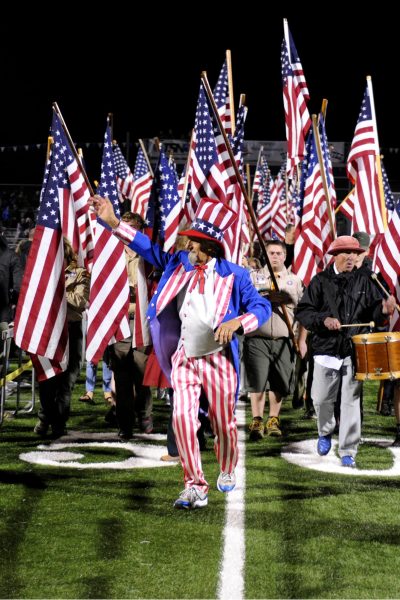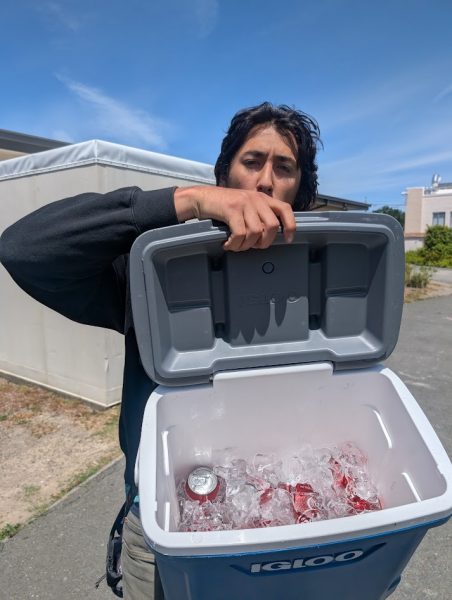Calvin Terrell: Speaker, Educator, Community Builder
Last Month, Analy students watched in silence and in awe during Calvin Terrell’s moving presentation and speech, which has continued to leave a mark on our souls and our place in the world. Addressing issues of racism, sexism and recognizing the violence and genocide that results from these issues has a major effect on people, especially the average high school student from Analy, and it forces us to think about our own lives in relation to others. Terrell possesses the eloquence and knowledge to shock us about these undeniably stifling problems in society and in our culture. Since these things are often uncomfortable to acknowledge in ourselves, he had a tone of encouragement and determination, stressing that our actions reflect who we are and that we should always strive to be warriors. His rhetoric and emotional understanding of these important subjects has made a remarkable impact on me, the Analy student body, and whomever has the privilege of listening to him speak.
After getting a chance to speak to Terrell, it seemed clear to me that he is not just a motivational speaker. Not only is he telling his story and sharing his morals, he aims to have us question and improve our own. He is an educator, a community builder, and his intent and understanding is what allows him to connect with and reach people. I’ve noticed that when he speaks, he does not make it about him; he does not talk about himself and use his experience as validation for taking these issues seriously. Instead, he talks about his loved ones, experiences other than his own, about pain, and most importantly, he engages with his audience.
One of the many important aspects of Terrell’s speech was his helping us to recognize the conditioning that we have experienced, and do experience in our day-today lives. It is difficult to attempt to acknowledge and have others understand the repercussions and stifling results of this conditioning when we have become so desensitized to it. We go back to living our lives and may feel guilty in doing so, knowing how horribly some people live, but it is all we know how to do. Calvin successfully shocks us into realizing that these issues cannot be ignored by those who experience the oppression; it comes down to not only living comfortably in the only body you have, but surviving. By counting with his fingers to represent the number of women who are raped every hour, and even minute, it puts it into haunting perspective.
Terrell essentially tackles a life worth (14-18 years, the average high school student) of conditioning in just one hour, and he does so by forcing us to look inside ourselves. Students rose with pride as he listed off various ethnicities and cultures with which they identified, and some with grief and sadness when he told people to rise if they had ever witnessed the death of a loved one. He involves his audience in these subjects; it is the only way to truly make people see and understand a life that is not their own and pain that is not their own.
Still, much of it is up to us. After talking to several other Analy students, it was evident amongst many that they felt like they needed to do something to help, but were unsure as to how. Watching Terrell speak has reminded me of something I often forget: we live in a dominant society where we are fed stereotypes and repeatedly shown negative images of oppressed people in the media that make it seem as if the oppression is their own fault. It is baffling when you look for it, how blatantly racist and sexist some of the things we consider “the norm” are. And I often feel helpless too, for if it is accepted and it is the norm, what is one to do? How do we recognize this, and attempt to change it?
We continue to be conditioned, we continue to possess subtly oppressive behaviors that, in the long run, only allow for racism, sexism, etc. to survive even if we don’t mean for them to be harmful. A lot of what Terrell addresses can be related to the relationship between the oppressor and the oppressed, where we must recognize our oppressive tendencies and attempt to remove them, practice appreciating and allow those who are oppressed to live as safely as we can. We have more power than we think. We should always seek the opportunity to practice kindness and understanding, to be remembered as warriors in a world where those who experience painful discrimination should not have to.



